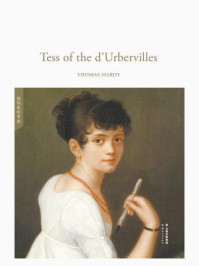





Four days after these curious incidents a funeral started from Canterville Chase at about eleven o’clock at night. The hearse was drawn by eight black horses, each of which carried on its head a great tuft of nodding ostrich-plumes, and the leaden coffin was covered by a rich purple pall, on which was embroidered in gold the Canterville coat-of-arms. By the side of the hearse and the coaches walked the servants with lighted torches, and the whole procession was wonderfully impressive. Lord Canterville was the chief mourner, having come up specially from Wales to attend the funeral, and sat in the first carriage along with little Virginia. Then came the United States Minister and his wife, then Washington and the three boys, and in the last carriage was Mrs. Umney. It was generally felt that, as she had been frightened by the ghost for more than fifty years of her life, she had a right to see the last of him. A deep grave had been dug in the corner of the churchyard, just under the old yew-tree, and the service was read in the most impressive manner by the Rev. Augustus Dampier. When the ceremony was over, the servants, according to an old custom observed in the Canterville family, extinguished their torches, and, as the coffin was being lowered into the grave, Virginia stepped forward and laid on it a large cross made of white and pink almond-blossoms. As she did so, the moon came out from behind a cloud, and flooded with its silent silver the little churchyard, and from a distant copse a nightingale began to sing. She thought of the ghost’s description of the Garden of Death, her eyes became dim with tears, and she hardly spoke a word during the drive home.
The next morning, before Lord Canterville went up to town, Mr. Otis had an interview with him on the subject of the jewels the ghost had given to Virginia. They were perfectly magnificent, especially a certain ruby necklace with old Venetian setting, which was really a superb specimen of sixteenth-century work, and their value was so great that Mr. Otis felt considerable scruples about allowing his daughter to accept them.
‘My lord,’ he said, ‘I know that in this country mortmain is held to apply to trinkets as well as to land, and it is quite clear to me that these jewels are, or should be, heirlooms in your family. I must beg you, accordingly, to take them to London with you, and to regard them simply as a portion of your property which has been restored to you under certain strange conditions. As for my daughter, she is merely a child, and has as yet, I am glad to say, but little interest in such appurtenances of idle luxury. I am also informed by Mrs. Otis, who, I may say, is no mean authority upon Art - having had the privilege of spending several winters in Boston when she was a girl - that these gems are of great monetary worth, and if offered for sale would fetch a tall price. Under these circumstances, Lord Canterville, I feel sure that you will recognise how impossible it would be for me to allow them to remain in the possession of any member of my family; and, indeed, all such vain gauds and toys, however suitable or necessary to the dignity of the British aristocracy, would be completely out of place among those who have been brought up on the severe, and I believe immortal, principles of republican simplicity. Perhaps I should mention that Virginia is very anxious that you should allow her to retain the box as a memento of your unfortunate but misguided ancestor. As it is extremely old, and consequently a good deal out of repair, you may perhaps think fit to comply with her request. For my own part, I confess I am a good deal surprised to find a child of mine expressing sympathy with mediaevalism in any form, and can only account for it by the fact that Virginia was born in one of your London suburbs shortly after Mrs. Otis had returned from a trip to Athens.’
Lord Canterville listened very gravely to the worthy Minister’s speech, pulling his grey moustache now and then to hide an involuntary smile, and when Mr. Otis had ended, he shook him cordially by the hand, and said, ‘My dear sir, your charming little daughter rendered my unlucky ancestor, Sir Simon, a very important service, and I and my family are much indebted to her for her marvellous courage and pluck. The jewels are clearly hers, and, egad, I believe that if I were heartless enough to take them from her, the wicked old fellow would be out of his grave in a fortnight, leading me the devil of a life. As for their being heirlooms, nothing is an heirloom that is not so mentioned in a will or legal document, and the existence of these jewels has been quite unknown. I assure you I have no more claim on them than your butler, and when Miss Virginia grows up I daresay she will be pleased to have pretty things to wear. Besides, you forget, Mr. Otis, that you took the furniture and the ghost at a valuation, and anything that belonged to the ghost passed at once into your possession, as, whatever activity Sir Simon may have shown in the corridor at night, in point of law he was really dead, and you acquired his property by purchase.’
Mr. Otis was a good deal distressed at Lord Canterville’s refusal, and begged him to reconsider his decision, but the good-natured peer was quite firm, and finally induced the Minister to allow his daughter to retain the present the ghost had given her, and when, in the spring of 1890, the young Duchess of Cheshire was presented at the Queen’s first drawing-room on the occasion of her marriage, her jewels were the universal theme of admiration. For Virginia received the coronet, which is the reward of all good little American girls, and was married to her boy-lover as soon as he came of age. They were both so charming, and they loved each other so much, that every one was delighted at the match, except the old Marchioness of Dumbleton, who had tried to catch the Duke for one of her seven unmarried daughters, and had given no less than three expensive dinner-parties for that purpose, and, strange to say, Mr. Otis himself. Mr. Otis was extremely fond of the young Duke personally, but, theoretically, he objected to titles, and, to use his own words, ‘was not without apprehension lest, amid the enervating influences of a pleasure-loving aristocracy, the true principles of republican simplicity should be forgotten.’ His objections, however, were completely overruled, and I believe that when he walked up the aisle of St. George’s, Hanover Square, with his daughter leaning on his arm, there was not a prouder man in the whole length and breadth of England.
The Duke and Duchess, after the honeymoon was over, went down to Canterville Chase, and on the day after their arrival they walked over in the afternoon to the lonely churchyard by the pine-woods. There had been a great deal of difficulty at first about the inscription on Sir Simon’s tombstone, but finally it had been decided to engrave on it simply the initials of the old gentleman’s name, and the verse from the library window. The Duchess had brought with her some lovely roses, which she strewed upon the grave, and after they had stood by it for some time they strolled into the ruined chancel of the old abbey. There the Duchess sat down on a fallen pillar, while her husband lay at her feet smoking a cigarette and looking up at her beautiful eyes. Suddenly he threw his cigarette away, took hold of her hand, and said to her, ‘Virginia, a wife should have no secrets from her husband.’
‘Dear Cecil! I have no secrets from you.’
‘Yes, you have,’ he answered, smiling, ‘you have never told me what happened to you when you were locked up with the ghost.’
‘I have never told any one, Cecil,’ said Virginia gravely.
‘I know that, but you might tell me.’
‘Please don’t ask me, Cecil, I cannot tell you. Poor Sir Simon! I owe him a great deal. Yes, don’t laugh, Cecil, I really do. He made me see what Life is, and what Death signifies, and why Love is stronger than both.’
The Duke rose and kissed his wife lovingly.
‘You can have your secret as long as I have your heart,’ he murmured.
‘You have always had that, Cecil.’
‘And you will tell our children some day, won’t you?’
Virginia blushed.


